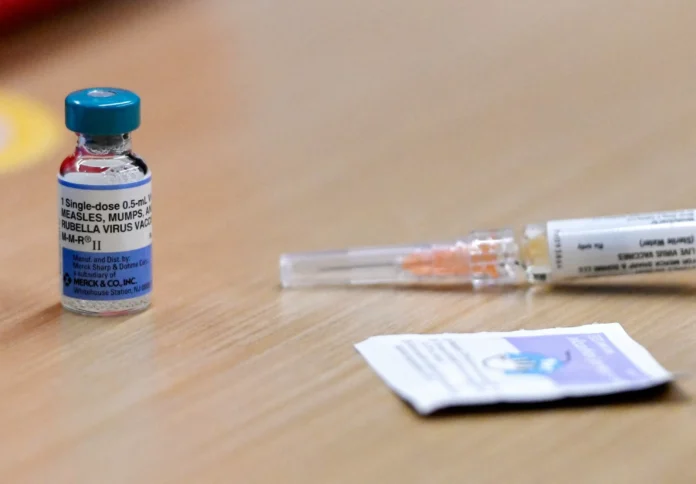The recent measles outbreak in West Texas has once again brought to light the importance of immunization and the consequences of neglecting it. The outbreak, which has affected hundreds of people, is a stark reminder of the fragility of America’s immunization programs and the long-term effects of years of underfunding and vaccine hesitancy.
Measles, a highly contagious viral infection, was declared eliminated in the United States in 2000. This achievement was a result of successful immunization programs that ensured a high percentage of the population was vaccinated against the disease. However, in recent years, there has been a rise in the number of measles cases in the US, with the latest outbreak in West Texas being one of the worst in decades.
The outbreak has been linked to the growing number of people who choose not to vaccinate themselves or their children. This trend, fueled by misinformation and fear, has led to a decrease in vaccination rates in many communities across the country. As a result, diseases that were once thought to be eradicated are making a comeback, putting the health and well-being of individuals and communities at risk.
The consequences of underfunding and vaccine hesitancy are not limited to the current outbreak in West Texas. They have far-reaching effects that can last for generations. When a significant portion of the population is not vaccinated, it creates an environment where diseases can easily spread, even to those who are vaccinated. This puts vulnerable individuals, such as infants, pregnant women, and people with weakened immune systems, at a higher risk of contracting these diseases.
Moreover, the economic impact of outbreaks like the one in West Texas cannot be ignored. The cost of treating and containing the disease, as well as the loss of productivity due to illness, can take a toll on communities and strain healthcare systems. This is especially true for low-income communities that may not have access to proper healthcare and resources to combat the disease effectively.
It is crucial to understand that the consequences of neglecting immunization go beyond the immediate health risks. Vaccines not only protect individuals from diseases but also contribute to the overall health and well-being of society. When a significant portion of the population is vaccinated, it creates herd immunity, which makes it difficult for diseases to spread and protects those who cannot be vaccinated. This is especially important for diseases like measles, which can have severe complications and even lead to death.
The recent outbreak in West Texas should serve as a wake-up call for all of us. It is a reminder that we cannot take the success of our immunization programs for granted. We must continue to invest in and support these programs to ensure that they remain effective in preventing the spread of diseases. This requires not only adequate funding but also efforts to combat vaccine hesitancy and address misinformation.
Government agencies, healthcare professionals, and community leaders all have a role to play in promoting the importance of immunization and addressing the underlying reasons for vaccine hesitancy. This includes providing accurate information about vaccines, addressing concerns and fears, and ensuring access to vaccines for all individuals. It is also essential to address the disparities in access to healthcare and resources that may contribute to lower vaccination rates in certain communities.
As individuals, we also have a responsibility to protect ourselves and our communities by getting vaccinated. We must educate ourselves and our loved ones about the benefits of vaccines and make informed decisions based on scientific evidence rather than misinformation. By doing so, we not only protect ourselves but also contribute to the health and well-being of society as a whole.
In conclusion, the recent measles outbreak in West Texas serves as a reminder that immunization is not a choice but a responsibility. It is a responsibility towards ourselves, our loved ones, and our communities. We must take a proactive approach towards promoting and supporting immunization programs to prevent future outbreaks and protect the health and well-being of all. Let us use this wake-up call to strengthen our immunization programs and ensure a healthier future for generations to come.


